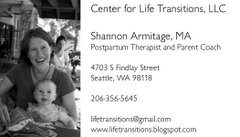I recently listened to an episode of "This American Life", where I learned that, on average, half of people's relationships are with friends whom we care a lot about, and yet, these relationships are rife with negativity and animosity. So why do we stay in these friendships? We stay for reasons we seemingly impose on ourselves: out of a sense of loyalty, belonging, or hope that the other person will change. We stay friends with "frenemies" because we think we must. We stay despite the feelings of anxiety, anger, and angst these relationships evoke.
Going back to my earlier post about "bully rats", I've been thinking about how to reduce the stress we experience within ourselves and within relationships. So what to do when our "bully rat" is a friend?
Here's a strategy for confronting what's unhealthy in the relationship: First, sit down with your friend and acknowledge what's good and healthy about the relationship. When is the relationship fun, supportive, comforting? Second, acknowledge what challenges your relationship faces. When does the relationship devolve into negativity, competitiveness, blame, shame, etc.? Finally, make a pledge that you will seek to avoid that which makes your relationship undesirable. Ask your friend to do the same. And pledge that you will hold each other accountable to the pledge against these undesirables. If either of you can't agree to the contract or don't uphold the agreement, it's time to move on. Give yourself permission to do this: Everyone deserves to be loved unconditionally by our friends, or else the "friendship" is just another bully rat in our cage.
Saturday, September 26, 2009
Friday, September 18, 2009
Intentional Fathering Lecture at Mosaic Coffeehouse on Sept. 30
Postpartum Support International of Washington presents an evening with psychotherapist Derek Trlica, MA, LMHC on intentional fathering at Mosaic Coffeehouse on Sept. 30. Burning questions to be answered include: What kind of father would I like to be? How do other dads do it? What might stop me from being a good father?
Here are the deets: Mosaic Coffeehouse is located at 4401 2nd Ave. NE. in the Wallingford neighborhood of Seattle. The lecture is scheduled for Sept. 30, 7:00-8:30 p.m. A $5 donation is suggested to benefit PSI of WA. RSVP to 1-888-404-7763 or heidikossnobel@comcast.com.
Here are the deets: Mosaic Coffeehouse is located at 4401 2nd Ave. NE. in the Wallingford neighborhood of Seattle. The lecture is scheduled for Sept. 30, 7:00-8:30 p.m. A $5 donation is suggested to benefit PSI of WA. RSVP to 1-888-404-7763 or heidikossnobel@comcast.com.
Sunday, September 6, 2009
When the "Baby Blues" Strikes Dads
Sex therapist and relationship counselor Ian Kerner, PhD recently wrote about his own experience of depression after the birth of his first son in this article. He very astutely points out that for him, as well as for many new dads experiencing depression, he turned to the liquor cabinet as way of coping. Alcohol, being a depressant itself, further exacerbates depressive symptoms.
Kerner also lists other warning signs to look out for if a new dad you know seems to be struggling to cope with the transition to parenthood, including: changes in libido, putting up a good front, isolating himself, difficulties sleeping (even when feeling tired), family history of depression, or self-medicating. I would also note that the term "self-medicating" often refers to drugs or alcohol, but in some men, could also mean food, internet, or pornography.
Kerner also lists other warning signs to look out for if a new dad you know seems to be struggling to cope with the transition to parenthood, including: changes in libido, putting up a good front, isolating himself, difficulties sleeping (even when feeling tired), family history of depression, or self-medicating. I would also note that the term "self-medicating" often refers to drugs or alcohol, but in some men, could also mean food, internet, or pornography.
Subscribe to:
Posts (Atom)

